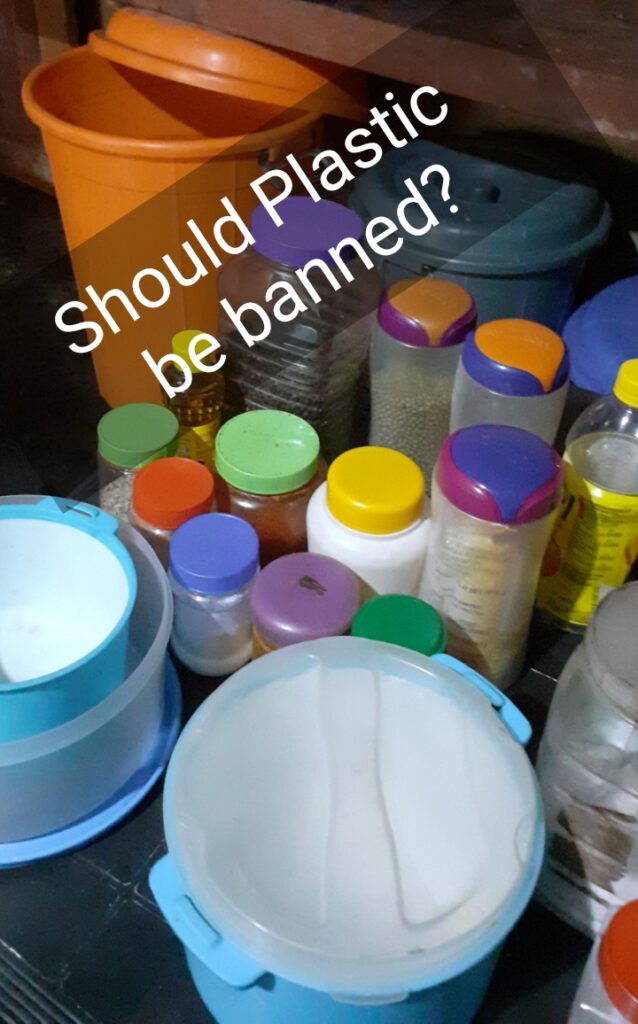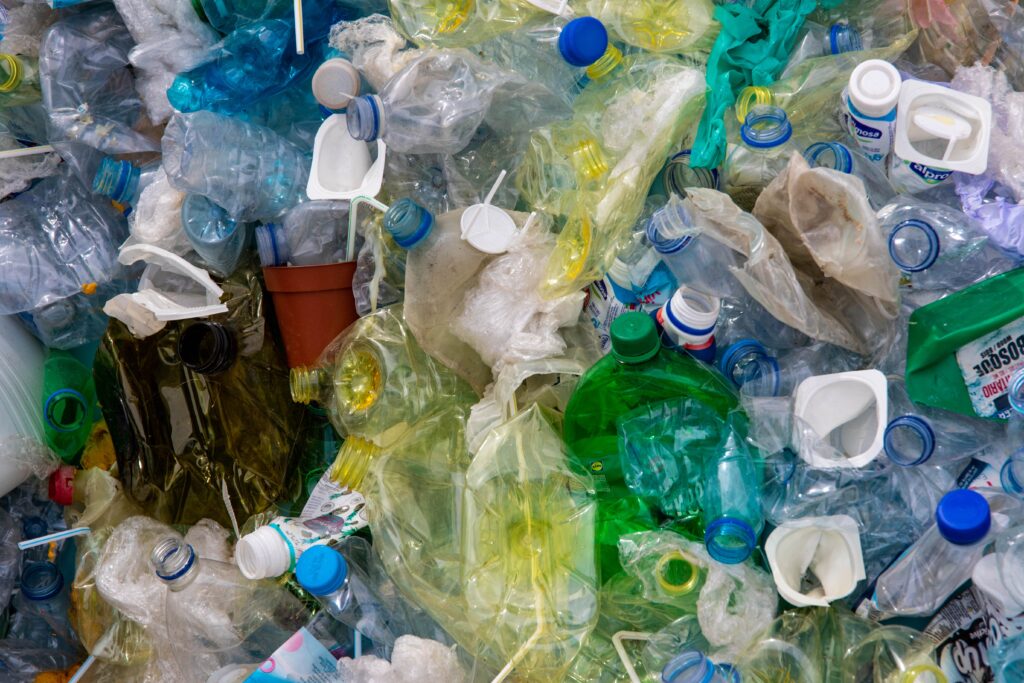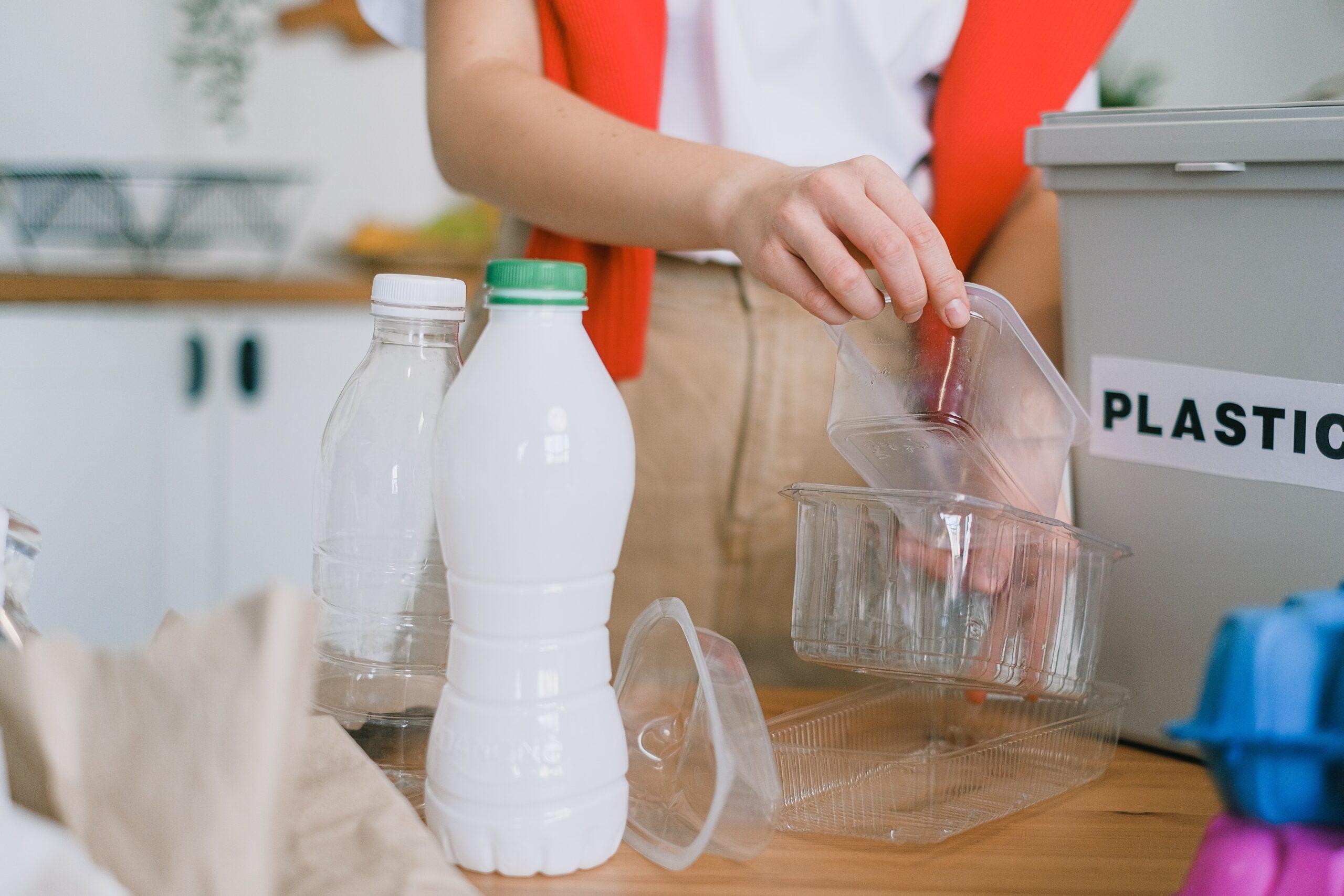
Should plastic be banned? It is in the question itself that the answer resides. Doesn’t one realize that plastic plays a very significant role in our lives when we ask that question? To be honest, we are in a situation where we can’t live without plastic. The uses of this material are endless. But considering the disadvantages, that’s also a lot. It is undeniable that plastic causes many health and environmental problems. However, whether they should be banned or not has always been a controversial topic in society. To a great extent, banning them is neither realistic nor necessary. There are plenty of reasons why plastic should not be banned. At the same time, some other reasons are here for the ban on plastic. Try to emphasize the good without mentioning the faults and shortcomings first. We should begin by discussing plastic’s many advantages and benefits. After that it can be decided should plastic be banned or not?
Plastic is literally everywhere
Although we refer to this period as the Corona period, the period immediately before it could be called the plastic age. That much plastic has become a part of our daily lives. Just take a moment to look around you. No matter where you are, whether you’re at home or in the office. Maybe sitting in a plastic chair or at a plastic table with a laptop. Sometimes the table maybe some other material but it is adorned with a plastic sheet. Isn’t it? You will be sitting on a plastic chair, there will be a plastic chair in front of you. Otherwise, you will be holding a plastic pen. Look at the laptop’s case. Plastics are everywhere, aren’t they? If you’re in the kitchen, no need to say anything. There are many plastics around you when you look around. There is an array of plastic items all around you. Various items are made of plastic, including jars, cups, jars, baskets, tables, brooms, buckets, mugs, basins, chairs, fans, etc. As a poet once wrote, “Everywhere you turn, you see, only flowering trees are present”. Today, it’s the same everywhere we look; we see only plastic items. We have turned our kitchen into a plastic storage room. It is obvious why we should not ban plastic now.
What are the benefits of using Plastic?
Plastic is literally everywhere! The material has dominated every industry, and it’s all but impossible to go anywhere without seeing or using some sort of plastic product. But with plastic finding its way into so many areas of our lives, it’s worth examining the advantages and disadvantages of using the material. In this article, we’ll discuss both sides of the issue, as well as provide some tips on how to minimize these risks while still enjoying the many benefits of plastic products in our daily life. Containers and bottles made from plastic are always more in demand than those made from other materials, mainly because of their flexibility and convenience. The reason plastic is so popular is due to its many benefits. Several factors contribute to the popularity of plastic. Most products we buy today come in some sort of plastic packaging, from food to toiletries. But what are the benefits of choosing plastic over other forms of packaging?
Several factors contribute to the popularity of plastic
Let’s take a look at some reasons why plastic is so great! The first thing is its low cost. Next, it’s lightweight, which makes it more cost-effective to ship around. This can save you money since you don’t have to pay for heavier packaging like wood or glass. Another reason is it’s flexible and durable, it helps prevent damage during transit. Another benefit of plastic is its water-resistant capacity. They are easy to mold and have excellent finishing. The plastics are soft, but they have very good toughness and strength. The material is not prone to rusting like other materials. Last but not least, it takes up less space than other types of containers on a shelf, so you can fit more products into a smaller space. That way customers can see everything that’s available without having to search around on shelves! Seeing all this, we do not know should plastic be banned or not.

Photo by Magda Ehlers: https://www.pexels.com
Plastic waste is a global problem.
What are the problems associated with Plastic?
Since it is so durable, lightweight, and flexible, plastic has become an integral part of modern life. However, all these benefits come with a huge problem: most plastic packaging cannot be recycled. Plastics that are meant to be single-use items, such as straws or bags, often end up in landfills because they can’t be recycled with other materials. Even plastics that CAN be recyclable are often not recycled because simply there isn’t enough infrastructure to support recycling them. To get rid of disposable plastics for good you need to avoid creating them in the first place by opting for reusable alternatives like metal or paper food containers. Plastic waste is a global problem. The amount of solid waste produced worldwide each year is estimated to be more than 201 million tons. Of these, plastic is the largest and most dangerous. The amount of plastic waste that takes years to decompose was two hundred and forty-two million tons in 2016. Ninety percent of the waste currently discharged into the sea is plastic. Plastic will dominate the ocean by the year 2050, according to scientists. The amount of plastic in the ocean will exceed the number of sea creatures. It is said that a good portion of the world’s plastic waste comes from food and related sectors. The marine fishery is polluted because of plastic waste. The plastic we throw away comes back to us through the water. Several types of microplastics are found in fish, which are ingested by us.
How can these problems be addressed and resolved?
Biodegradable plastics, on one hand, would help to address some of these problems. But bioplastics can still leave some nasty chemicals behind, too. Truth be told, we love plastic a lot. Even knowing the many disadvantages of plastic, it is impossible to give up plastic altogether. However, we have to be very careful. Luckily, science has given us an alternative to traditional plastic: paper! Believe it or not, paper is actually more durable than many other kinds of materials commonly used. Paper can be recycled and is very useful. But the fact is that paper cannot be used for everything instead of plastic. Another problem is that when the use of paper increases, it affects our plant resources. The human body and many other animals are dependent upon plants and other species that eat plants. Freshwater resources on Earth are dwindling. Most rivers are drying up. Because the forests that supplied water to the rivers have disappeared. Afforestation is the responsibility of not only the government but also the industries and individuals. Activities for that should be intensified. Everyone must be prepared to plant trees and protect the earth. The cost for this is not a loss but an investment in the earth. It is an investment in the earth because it ensures access to clean air, water, environment, and health. We have nowhere else to go. We have only this earth to live on. While many people would say that plastic packaging is a convenient, inexpensive way to store and handle food, others would say that it’s detrimental to our environment. There are some pretty obvious pros and cons of using plastic packaging in our world today. It’s up to you, as an informed consumer, to decide which side you fall on.
We now understand the pros and cons of plastic in great detail. Now it is up to us to decide, should plastic be banned? It would be good to note a few more things
- Plastic consumption can be significantly reduced if we pay a little more attention.
- The first step is to change our approach to waste.
- The practice of dumping any waste in a public place or elsewhere should be completely changed.
- The presence of plastic should be minimized as much as possible.
- Imagine we are going on a trip. During a one-day trip, we can take care of drinking water.
- But what do we do? We pay cash for water and then throw away the plastic bottle.
- Carry one or two cloth bags with you when going to the shops so that plastic waste can be greatly reduced.
- Reuse is the simplest way to deal with the plastic waste crisis.
- There are several mechanisms for this that need to be expanded.
- There is a need to increase the production and use of eco-friendly materials that can be used instead of plastic.
- Depending on the situation in each country, one should learn to use rubber, handloom paper, jute, etc.
- Society needs to recognize the endless industrial and employment potential that waste disposal and management can provide.
- The field of science and technology should pay more attention to finding the best technologies to solve the plastic waste problem.
- Local bodies and institutions like Kudumbasree play a major role in waste collection and treatment.
- Community members should provide them with adequate support.
- The first agenda of development should be a clean environment, clean water, and clean air.
- There are a number of ways to tackle these issues; we just need to decide which approach will be best for us.
You might find these posts useful:
Importance of Excursions in everyday life
Discipline is a Valuable Quality



Pingback: Waste disposal and treatment – Lovely Essays